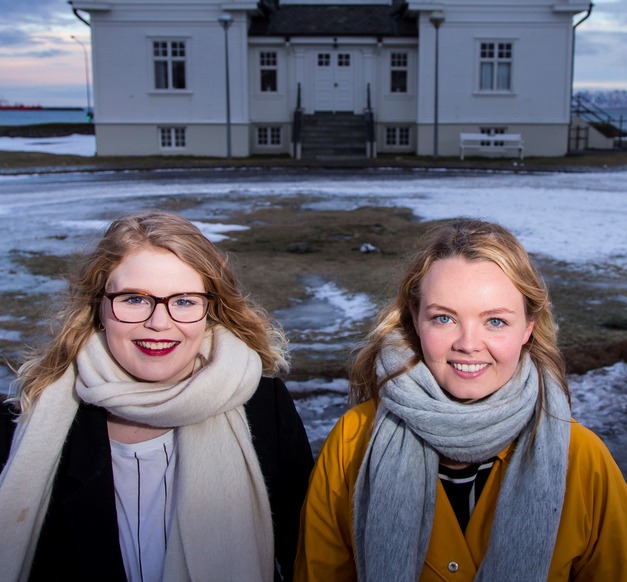The City of Reykjavík and the University of Iceland entered into a cooperative agreement in early 2015 to establish a Peace Centre. The Peace Centre, launched in autumn 2016, will promote non-violent communications; the eradication of interpersonal violence, and peaceful relations between states and organizations. The launching of HÖFÐI Reykjavik Peace Centre at the University of Iceland is an important next step in Reykjavík's mission to become a city of peace.
These goals were the spark for an innovation project for Álfrún Perla Baldursdóttir and Hulda Hólmkelsdóttir, BA students in political science at the University of Iceland. They studied Reykjavík as a city of peace: what it involves to be a city of peace, and how a city in a small state can promote peace, peace culture, disarmament and peacekeeping.
Furthermore, Álfrún Perla and Hulda studied how education on peace is conducted in elementary schools in Reykjavík as they say it is important to discuss peace from a variety of perspectives, and how peace affects all aspects of daily life. The study was supported by the Icelandic Student Innovation Fund. "Cities of peace have not been studied to any extent and educational material is currently non-existing within Icelandic primary schools, we hope that our research will change that," say Álfrún Perla and Hulda.
"The educational material created in connection with the research was used on the international peace day 21 September and is currently accessible to the public on the website of UNA Iceland (the United Nations Associations in Iceland. "The curriculum will also be sent to the schools for teaching. The peace education is designed with a view to have both entertainment and educational value for diverse age groups," they add.
Their project also discusses ideas on the future of the Peace Centre and how to promote peace by educating people and supporting research. HÖFÐI Reykjavík Peace Centre is run under the auspices of the Institute of International Affairs at the University of Iceland. Supervisor: Silja Bára Ómarsdóttir, Adjunct at the Faculty of Political Science.



